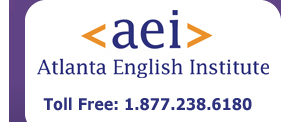Most of you, after months of careful
study, know what to expect on Test Day in terms of GMAT content.
However, it’s also important to know what to expect when you arrive
at the Pearson Center for your GMAT Test Day. Just as you have
learned and practiced GMAT strategies, you should have a plan for
handling your breaks and using your note board (the odd beast that
stands in for scratch paper) wisely.
Test Day security
When you first arrive at the Pearson
Center, you will use your ID to check in and register a digital scan
of the vein patterns in your palm. Next, you will place all of you
personal items in a locker. This includes IDs, watches, phones,
wallets, keys, and even tissues. You will not be able to bring
anything with you into the testing room, and you will not be able to
access these items during breaks in the test.
When you first arrive at the Pearson
Center, you will use your ID to check in and register a digital scan
of the vein patterns in your palm. Next, you will place all of you
personal items in a locker. This includes IDs, watches, phones,
wallets, keys, and even tissues. You will not be able to bring
anything with you into the testing room, and you will not be able to
access these items during breaks in the test.
Once you are ready to get started, you
will again scan your palm at the door to the testing room, and you
will be assigned a computer on which to take your exam. Any time you
re-enter the test room you will need to provide a palm scan to prove
you are still the same person.
Testing room distractions
Once seated, you will begin the GMAT,
but keep in mind that other test takers will not be starting at the
exact same time as you. Some will be in the middle of their exams
when you begin, and some may start after you. Furthermore, some test
takers will be taking tests other than the GMAT. This means that
everyone’s breaks will be at different times. While no one will
talk in the testing room, be ready for people to move around while
you are taking your exam.
The proctor will offer you
noise-canceling headphones when you arrive. These can help to
minimize these distractions, but you may want to take one of your
GMAT practice tests with headphones to get used to the sound of your
breathing. It can be a bit distracting… you might sound a bit like
Darth Vader.
Taking breaks
Your breaks will be either minutes long
and are optional (though we do recommend that you use them for a bit
of mental and physical respite). Be careful: the test will start
without you if you are not back in time. Remember that you have some
time-consuming security hoops to jump through to get back to the
computer, so make sure you don’t take too long of a break. Also
remember to locate the bathrooms before you start your exam, so that
you can find them quickly once you are on your break.
GMAT resources
Finally, you will be given four bound,
double-sided wet erase sheets and a wet erase pen (very different
from the pencil or pen and paper you may have been practicing with).
If you run out of room, you can request a new set of sheets. To do so
you must raise your hand, and the proctor will bring a new set to you
and take away your used set.
Since this process takes time, you want
to minimize how often you trade. The best move is to always trade
during the breaks so that it doesn’t take up any of your test time.
Additionally, you may want to switch sets once in the middle of the
quantitative section. You should try not to trade out your scratch
sheets during any of the other sections.
The vast majority of your prep time
should be on GMAT content, but you don’t want to run into
unnecessary Test Day stress because you are not ready for all of the
rules at the Pearson Center. So, make sure you know exactly what to
expect on Test Day.




